DJI Loses Major Pentagon Lawsuit in Sweeping Defeat
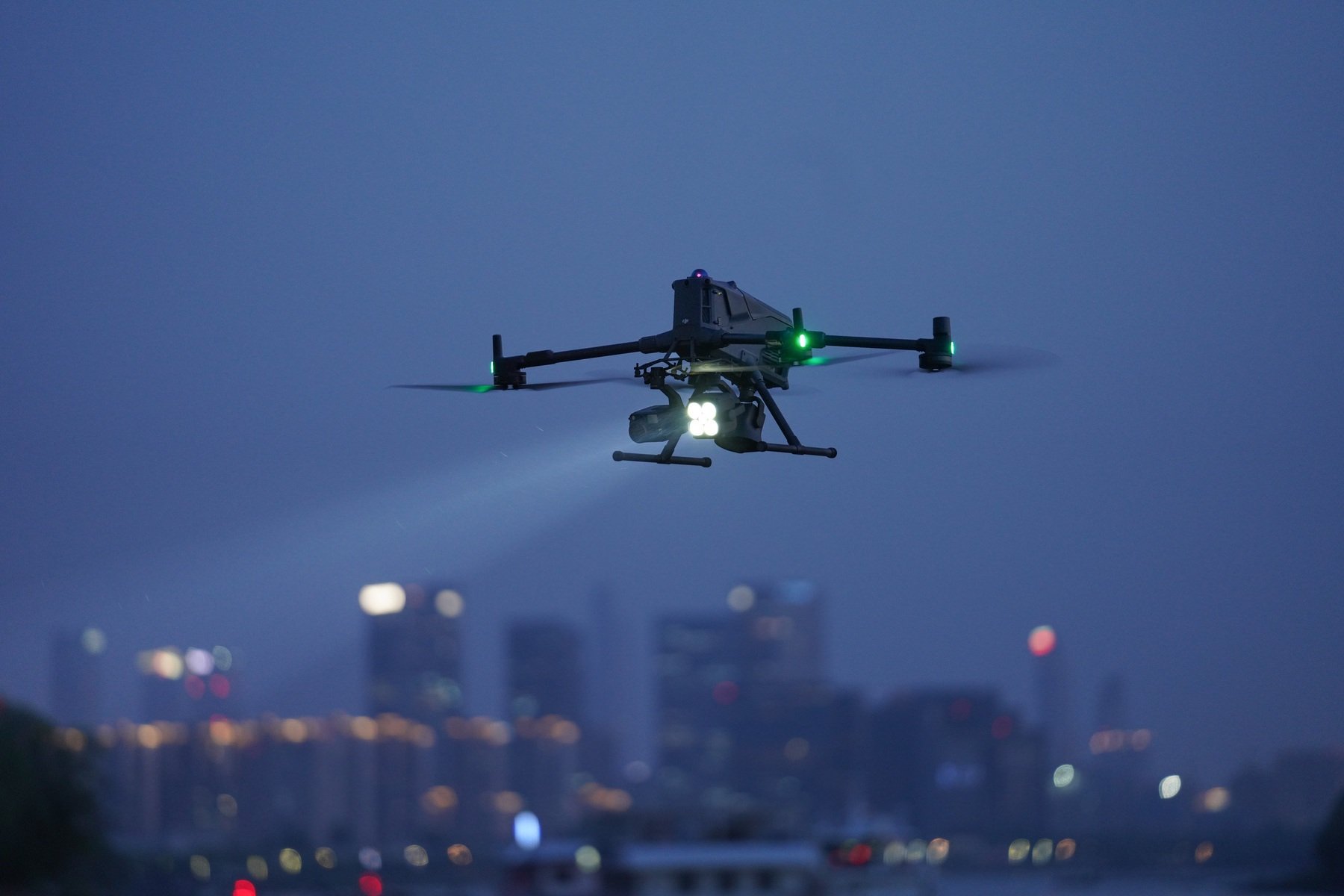
Check out the Best Deals on Amazon for DJI Drones today!
DJI suffered a comprehensive legal defeat on September 26, 2025, when US District Judge Paul Friedman rejected the Chinese drone giant’s challenge to its Pentagon “Chinese Military Company” designation, dealing a crushing blow to the world’s dominant drone manufacturer despite the court’s acknowledgment that the Defense Department’s evidence wasn’t “bulletproof,” reports Reuters. The 49-page ruling upholds DJI’s national security threat classification and leaves the company facing cascading business restrictions, supply chain disruptions, and the looming specter of an automatic product ban if federal agencies fail to complete a mandated security review by December 23, 2025.
BREAKING: DJI SHELL COMPANY JOVISTAR SIGNALS MINI 5 PRO CLONE FOR U.S. MARKET
The decision represents far more than a courtroom loss for DJI—it signals a fundamental restructuring of the American drone market, where 90% of police departments and 76% of all registered drones rely on Chinese technology now branded as a national security risk. With federal contracts terminated, state-level bans expanding, and US Customs detaining shipments under forced labor allegations, DJI’s defeat crystallizes the broader US-China technology decoupling that is reshaping critical infrastructure industries.

Court endorses Pentagon authority despite flawed evidence
Judge Friedman’s ruling established a precedent of extraordinary judicial deference to national security determinations, even when the government’s case contains significant gaps. While the court agreed with DJI that the DoD’s evidence regarding Chinese Communist Party ownership was insufficient, Friedman ultimately ruled that the Pentagon possessed “wide-ranging discretion” to designate entities as military threats based on their contributions to China’s “defense industrial base.”
The judge specifically found that DJI qualified as a “military-civil fusion contributor” under Section 1260H of the 2021 National Defense Authorization Act, noting that the company’s technology “has both substantial theoretical and actual military application” regardless of DJI’s policies prohibiting military use. This reasoning effectively renders company compliance policies irrelevant if the underlying technology possesses dual-use capabilities.
DJI’s legal team, including former Obama Attorney General Loretta Lynch, argued that the designation violated administrative law by relying on “stale alleged facts” and inadequate evidence. The company demonstrated that founder and early investors control 88% of stock and 99.3% of voting rights, while state-owned entities hold merely 4.3% of shares and 0.5% of votes—far below traditional ownership thresholds for foreign control determinations.
However, Friedman ruled that “evidence of DJI’s ownership is difficult to discern” and that courts should defer to Pentagon assessments involving national security considerations. The decision suggests that complex corporate structures and indirect government relationships may be sufficient for military company designations under the current legal framework, regardless of actual control mechanisms.
Business catastrophe spreads across drone ecosystem
The legal defeat compounds DJI’s mounting business crisis, with the company reporting losses “in the hundreds of millions” as customers terminate existing contracts and federal agencies implement comprehensive purchasing bans. The designation has triggered a domino effect throughout the American drone industry, where DJI’s 76% market share means that restricting the company fundamentally disrupts the entire technological ecosystem.
Critical supply shortages have emerged across retail channels, with major distributors including Best Buy, Amazon, B&H Photo, and Adorama reporting depleted inventory due to US Customs detaining DJI shipments under the Uyghur Forced Labor Prevention Act since October 2024. DJI’s official US online store displays widespread “sold out” status across product lines, forcing customers toward significantly more expensive domestic alternatives that industry professionals acknowledge lack comparable capabilities.
The economic implications extend far beyond DJI itself. The Drone Service Providers Alliance found that 67% of American small drone businesses could close without access to Chinese-manufactured equipment, representing potential job losses across 450,000+ positions that DJI’s presence has historically supported through its broader economic footprint. Public safety agencies face particularly acute challenges, with the Department of Interior documenting cost increases from $2,600 to over $15,000 per unit when switching from DJI to approved domestic alternatives.
State-level restrictions compound federal designation impacts, with Arkansas, Florida, Mississippi, Tennessee, Texas, and Utah enacting various DJI prohibitions for public agencies. Florida alone has grounded $200 million worth of drones at the state level, while Missouri threatens to ground nearly 90% of public safety drones under proposed legislation that mirrors federal concerns.

December deadline threatens automatic product ban
Beyond the courtroom defeat, DJI faces an even more existential threat from Section 1709 of the FY2025 NDAA, which mandates a comprehensive security review by December 23, 2025. If no federal agency completes this assessment, DJI will automatically join the FCC’s Covered List, effectively banning new drone certifications and cutting off the company’s ability to introduce new products in the American market.
Despite DJI sending letters to five agencies (DHS, DoD, FBI, NSA, ODNI) in March 2025 requesting initiation of the mandated review, no federal agency has begun the security audit process as the deadline approaches. This bureaucratic inaction may accomplish what legislative efforts could not—the effective removal of DJI from the American market through administrative default rather than explicit policy decision.
Industry experts view this December deadline as more immediately threatening than the Pentagon designation itself. While the military company listing primarily affects federal contracting and creates reputational challenges, the FCC ban would halt new product introductions entirely, forcing existing DJI users to rely on aging equipment without upgrade pathways or technical support for next-generation capabilities.
The Commerce Department’s July 2025 launch of a Section 232 investigation into drone imports adds another regulatory layer, examining supply chain dependencies and national security risks that could justify broad import restrictions independent of other designations.
Technical framework enables expansive government authority
Section 1260H provides the Pentagon with remarkably broad discretionary authority to designate companies as military threats through eight specific “military-civil fusion” criteria, with an additional catchall provision allowing the Secretary of Defense to add any entity deemed “appropriate.” The statute’s two-pronged definition encompasses both direct military ownership and indirect contributions to China’s defense industrial base, creating multiple pathways for designation that extend far beyond traditional foreign control assessments.
Under the military-civil fusion framework, companies can qualify through seemingly routine business relationships with Chinese government agencies, participation in technology development programs, or receipt of various forms of state support that characterize normal business operations in China’s state-influenced economy. DJI’s National Enterprise Technology Center (NETC) status—shared by companies including Volkswagen—became sufficient evidence for military-civil fusion designation despite its civilian focus and widespread industry participation.
The 2025 NDAA amendments further expanded designation authority through “upstream/downstream ownership penetration,” allowing parent companies or subsidiaries with 50% or greater equity control to be deemed Chinese Military Companies if any controlled entity meets the definition. This provision creates potential designation risks for complex multinational corporate structures with Chinese subsidiaries or joint ventures.
Legal precedents emerging from DJI’s case and similar challenges establish that courts will apply “significant deference to DoD’s finding because it relates to national security,” creating high evidentiary barriers for companies seeking removal. The Advanced Micro-Fabrication Equipment Inc. (AMEC) represents one of the few successful challenges, achieving removal after demonstrating that designation relied solely on receiving a manufacturing award from the Ministry of Industry and Information Technology.
Industry transformation forces expensive realignment
DJI’s defeat accelerates a fundamental transformation of American drone markets toward domestic and allied manufacturers, despite significant capability gaps and cost premiums that may persist for years. The company’s dominance across consumer (70-90% globally), commercial (majority of US sales), and public safety sectors (90% of police departments) means that restricting DJI effectively requires rebuilding entire market segments around alternative technologies.
American alternatives face substantial scaling challenges and performance gaps that industry professionals acknowledge may take years to resolve. Skydio, despite representing the most prominent US alternative, holds merely 0.5% market share, while other competitors like Autel (8-9% market share) struggle to match DJI’s integration of hardware, software, and support ecosystems that have defined professional drone operations.
The cost implications extend beyond hardware pricing to encompass training, certification, and operational disruption as organizations built around DJI platforms must fundamentally restructure their technological infrastructure. Enterprise mapping operations report cost increases from $6,500 to $35,000 for comparable domestic alternatives, representing budget impacts that may prove prohibitive for smaller operators and public agencies.
Public safety agencies face particularly acute challenges, with first responder commanders testifying to Congress that US industry is not yet ready to provide comparable quality or features at accessible price points. The Government Accountability Office documented these capability gaps in a September 2024 report that highlighted the operational risks of forced transitions to inferior equipment in emergency response scenarios.
Appeal prospects dim amid national security deference
DJI’s potential appeal faces formidable obstacles given Judge Friedman’s emphasis on broad Pentagon discretionary authority and judicial reluctance to second-guess national security determinations. The ruling’s foundation on military-civil fusion contributions rather than direct Chinese government ownership suggests that alternative legal theories may be necessary for successful appellate arguments.
Legal experts note that the decision follows established patterns of judicial deference to executive branch national security assessments, particularly in cases involving Chinese technology companies where courts have consistently prioritized government security concerns over corporate due process arguments. The Hesai Group’s failed challenge, where the company was briefly removed but immediately re-added “on national security grounds,” illustrates the limited effectiveness of legal challenges even when companies demonstrate procedural violations.
However, DJI’s substantial legal resources and the precedential implications of the case may justify an appellate strategy focused on constitutional due process arguments or challenges to the statutory interpretation of military-civil fusion criteria. The company’s statement that it is “currently evaluating its legal options” suggests continued litigation remains under consideration despite the unfavorable legal landscape.
The broader regulatory context may ultimately prove more determinative than courtroom outcomes. With multiple federal agencies implementing overlapping restrictions through export controls, investment prohibitions, and contracting bans, legal victories in individual cases may provide limited practical relief if alternative regulatory authorities can achieve similar results through different statutory frameworks.
DJI’s Statement
DJI promptly responded with the following statement by spokesperson Daisy Kong to The Verge:
While DJI is pleased that the Court agreed with DJI and rejected most of DoD’s purported justifications for listing DJI, we are disappointed that the Court nonetheless upheld the listing. This decision was based on a single rationale that applies to many companies that have never been listed. DJI is currently evaluating its legal options in light of this decision.
DJI’s success is built on relentless innovation, and the market continues to choose our products for their reliability, safety, and accessibility. We remain committed to serving our U.S. customers and partners, and we call for fair competition in the United States. This is the approach that truly benefits the economy, the industry, and, most importantly, the operators who use our technologies to strengthen businesses and enhance public safety in communities across the country.
DroneXL’s Take
DJI’s courtroom defeat represents a watershed moment that extends far beyond a single company’s legal troubles to encompass a fundamental reconfiguration of American technology markets amid intensifying US-China strategic competition. Judge Friedman’s ruling establishes judicial precedents that essentially immunize national security designations from meaningful court review, creating a legal framework that prioritizes government discretion over corporate due process rights.
The decision’s immediate impact on the drone industry illustrates how geopolitical tensions translate into practical disruptions for thousands of businesses, public safety agencies, and individual professionals who have built operations around Chinese technology platforms. With DJI controlling three-quarters of the US drone market, the company’s effective exclusion through regulatory action rather than market competition raises fundamental questions about innovation, consumer choice, and American competitiveness in critical technology sectors.
As the December 23, 2025 deadline approaches without any agency initiating the mandated security review, DJI faces the prospect of automatic product bans that could prove more devastating than its courtroom losses. The company’s ultimate fate may depend less on legal arguments than on whether federal bureaucrats choose to act—or allow administrative inaction to accomplish what legislative efforts have struggled to achieve through explicit policy decisions.
Let us know in the comments below how this may affect your hobby or business. We are curious to hear your thoughts and concerns.
Photo credits: DJI
Discover more from DroneXL.co
Subscribe to get the latest posts sent to your email.
Check out our Classic Line of T-Shirts, Polos, Hoodies and more in our new store today!

MAKE YOUR VOICE HEARD
Proposed legislation threatens your ability to use drones for fun, work, and safety. The Drone Advocacy Alliance is fighting to ensure your voice is heard in these critical policy discussions.Join us and tell your elected officials to protect your right to fly.
Get your Part 107 Certificate
Pass the Part 107 test and take to the skies with the Pilot Institute. We have helped thousands of people become airplane and commercial drone pilots. Our courses are designed by industry experts to help you pass FAA tests and achieve your dreams.

Copyright © DroneXL.co 2026. All rights reserved. The content, images, and intellectual property on this website are protected by copyright law. Reproduction or distribution of any material without prior written permission from DroneXL.co is strictly prohibited. For permissions and inquiries, please contact us first. DroneXL.co is a proud partner of the Drone Advocacy Alliance. Be sure to check out DroneXL's sister site, EVXL.co, for all the latest news on electric vehicles.
FTC: DroneXL.co is an Amazon Associate and uses affiliate links that can generate income from qualifying purchases. We do not sell, share, rent out, or spam your email.




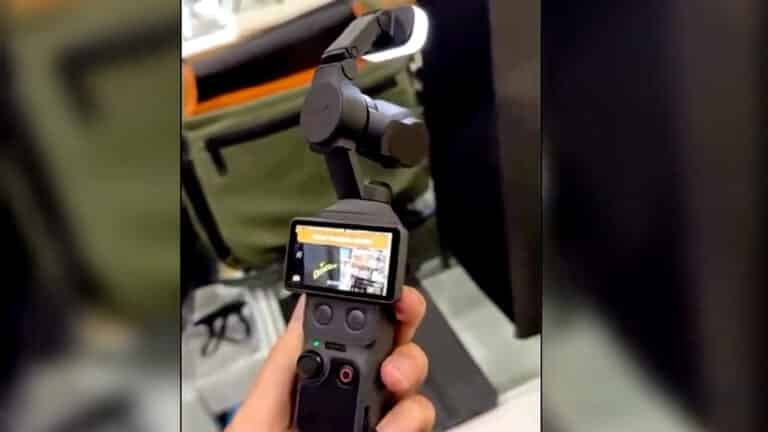

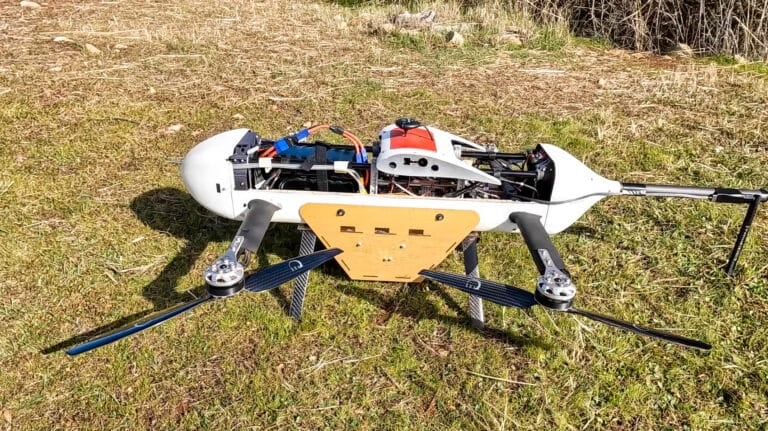








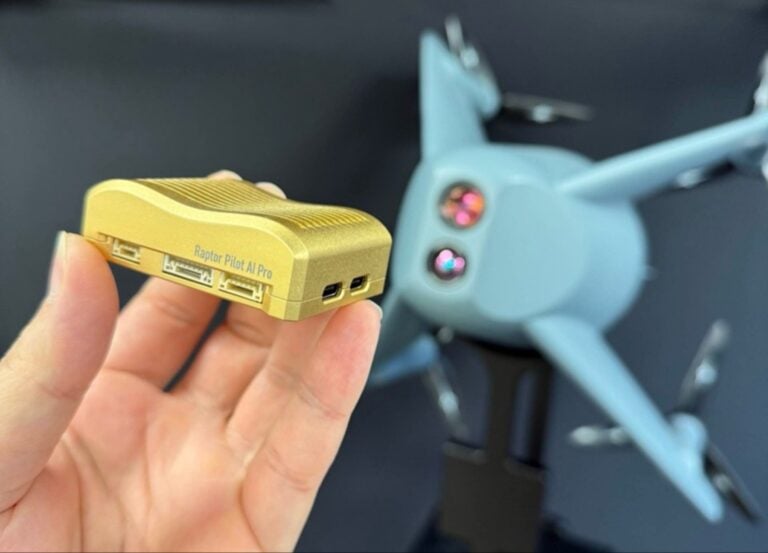


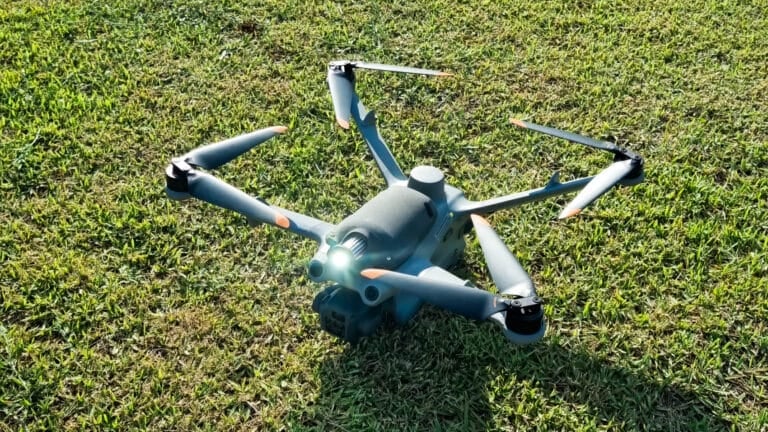
If I purchase a DJI drone today, is this article saying that the FAA could prohibit me from flying after 12/22/25?
Don’t think so. Maybe read or watch this one. https://dronexl.co/2025/09/29/dji-drone-ban-myths-debunked/